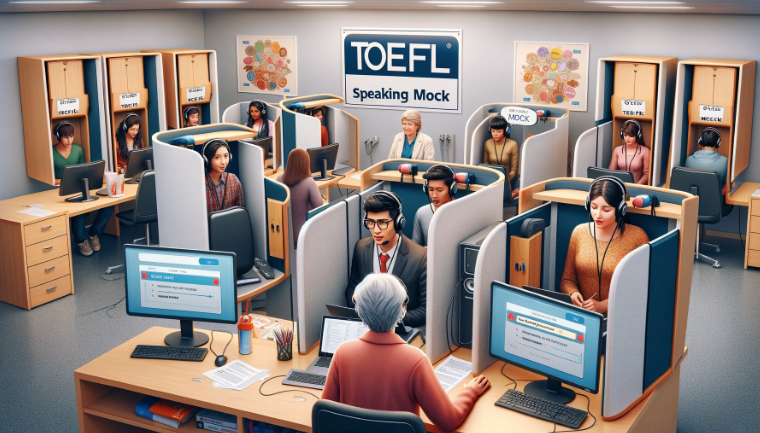― Contents (Total 52 Lessons) ―
⚫ Pert 1 Independent Speaking 11 Lessons
⚫ Part 2 Integrated Speaking I 22 Lessons
⚫ Part 3 Integrated Speaking II 11 Lessons
⚫ Actual Tests 8 Lessons
Part 1 Independent Speaking Lesson
Question 1 Personal Preference
Lesson 1 Sample Question
Lesson 2 Unit 11 Cell Phones Organizing/Response/Speaking/Compare
Unit 12 College Housing ArrangementsLesson 3 Organizing/Response/Speaking/Compare
Unit 13 Part-time JobsLesson 4 Organizing/Response/Speaking/Compare
Unit 14 Life after High SchoolLesson 5 Organizing/Response/Speaking/Compare
Unit 15 Measures of SuccessLesson 6 Organizing/Response/Speaking/Compare
Unit 16 Kinds of Books
Lesson 7 Organizing/Response/Speaking/Compare
Unit 17 Films & Concerts
Lesson 8 Organizing/Response/Speaking/Compare
Unit 18 Summer Vacation Activities
Lesson 9 Organizing/Response/Speaking/Compare
Unit 19 Comfort in Different Generations
Lesson 10 Organizing/Response/Speaking/Compare
Lesson 11 Unit 20 Life Lessons Organizing/Response/Speaking/Compare
Part 2 Integrated Speaking I
Question 2 Reading & Conversation
Lesson 12 Sample Question
Unit 21 School Facility
Lesson 13 Reading/Comprehending/Listening/Organizing/Response/Speaking
Unit22 Dormitory Policies I
Lesson 14 Reading/Comprehending/Listening/Organizing/Response/Speaking
Unit 23 Class Size Increases
Lesson 15 Reading/Comprehending/Listening/Organizing/Response/Speaking
Unit 24 School Policies
Lesson 16 Reading/Comprehending/Listening/Organizing/Response/Speaking
Unit 25 Night Classes
Lesson 17 Reading/Comprehending/Listening/Organizing/Response/Speaking
Unit 26 Dormitory Policies II
Lesson 18 Reading/Comprehending/Listening/Organizing/Response/Speaking
Unit 27 Student Affairs
Lesson 19 Reading/Comprehending/Listening/Organizing/Response/Speaking
Unit 28 Library Renovations
Lesson 20 Reading/Comprehending/Listening/Organizing/Response/Speaking
Unit 29 Online Library Materials
Lesson 21 Reading/Comprehending/Listening/Organizing/Response/Speaking
Unit 30 Parking Policies
Lesson 22 Reading/Comprehending/Listening/Organizing/Response/Speaking
Question 3 Reading & Lecture Lesson 23 Sample Question 23
Unit 31 Shaping
Lesson 24 Reading/Comprehending/Listening/Organizing/Response/Speaking
Unit 32 Memorization
Lesson 25 Reading/Comprehending/Listening/Organizing/Response/Speaking
Unit 33 Cyclic Population Change
Lesson 26 Reading/Comprehending/Listening/Organizing/Response/Speaking
Unit 34 Short-term Memories
Lesson 27 Reading/Comprehending/Listening/Organizing/Response/Speaking
Unit 35 Scent Marketing
Lesson 28 Reading/Comprehending/Listening/Organizing/Response/Speaking
Unit 36 Fixed Action Patterns
Lesson 29 Reading/Comprehending/Listening/Organizing/Response/Speaking
Unit 37 Creative Categorization
Lesson 30 Reading/Comprehending/Listening/Organizing/Response/Speaking
Unit 38 Process Explanation
Lesson 31 Reading/Comprehending/Listening/Organizing/Response/Speaking
Unit 39 Competence Stages
Lesson 32 Reading/Comprehending/Listening/Organizing/Response/Speaking
Unit 40 Paradoxes of Choice
Lesson 33 Reading/Comprehending/Listening/Organizing/Response/Speaking
Part 3 Integrated Speaking II Listen & Speak
Question 4 Lecture
Lesson 34 Sample Question
Unit 51 Defensive Adaptations
Lesson 35 Listening & Organizing/Response/Speaking
Unit 52 Name Recognition
Lesson 36 Listening & Organizing/Response/Speaking
Lesson 37 Unit 53 Art Methods Listening & Organizing/Response/Speaking
Unit 54 Animal Cooperation
Lesson 38 Listening & Organizing/Response/Speaking
Unit 55 Pollinator Attraction
Lesson 39 Listening & Organizing/Response/Speaking
Lesson 40 Unit 56 Photography Listening & Organizing/Response/Speaking
Lesson 41 Unit 57 Advertisements Listening & Organizing/Response/Speaking
Unit 58 Positive & Negative Reinforcement
Lesson 42 Listening & Organizing/Response/Speaking
Lesson 43 Unit 59 Film Shots Listening & Organizing/Response/Speaking
Lesson 44 Unit 60 Positive Thinking Listening & Organizing/Response/Speaking
Actual Tests
Actual Test 01
Lesson 45 Task 1
Lesson 46 Task 2 Reading →Listening → Question 46
Lesson 47 Task 3 Reading →Listening→ Question
Lesson 48 Task 4 Listening →Question 48
Actual Test 02
Lesson 49 Task 1
Lesson 50 Task 2 Reading →Listening → Question
Lesson 51 Task 3 Reading →Listening →Question
Lesson 52 Task 4 Listening →Question 52













